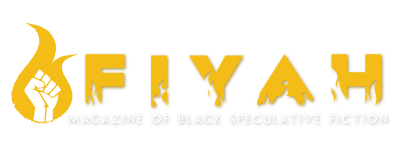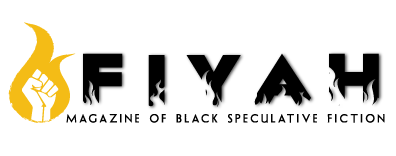
The staff here at FIYAH is very please and delighted to present to you Steven Barnes, author of too many wonderful SFF books to name and absolutely one of the pillars of the black SFF community. We spend a little time today talking to him about his latest novel, TWELVE DAYS.
FIYAH: Now that TWELVE DAYS is out in the universe, how do you feel about it as an individual work and as a part of your overall catalogue?
Steven: I’m very happy with it. I wasn’t certain I wanted to do a sequel to THE KUNDALINI EQUATION, and it took decades to convince myself I should, then years to come up with a basic concept, and more years to figure out how to structure it so that it respected the previous work but didn’t require reading KE to enjoy it. Most reviews indicate that I pulled it off. What a relief!
FIYAH: There is a very cinematic element to TWELVE DAYS that at many points made it feel like you were watching a tense thriller. What about your craft allows you to bring that kind of atmosphere to this work?
Steven: The underlying world-view, the philosophy and the psychology of the characters, the history of the situation, has to all be worked out as if you are constructing a clock’s “works”. The audience only sees the clock face. And then you have to make that face more and more human, so that the audience only feels the interaction of the characters, is pulled along by the emotions. Then, you just say what you see in your mind, and it has that “cinematic” quality.
FIYAH: The protagonists of this novel are black without ever having to explicitly get into their blackness from the perspective of the white gaze. How important do you think characters like Terry and Olympia are in the future of black SFF?
Steven: I think it is critical. I touch on race as “American racial identity” a small amount, but it actually comes out more in another character, who deals with racism in other contexts and environments. That was very deliberate.

FIYAH: TWELVE DAYS is pretty timely in terms of manufactured apocalypses for profit given who we have in office. Did current events make getting this novel out there more important for you and how would you like people to react to the text given the current climate?
Steven: That was timely, wasn’t it. But human beings have always had emergencies and threats. I want people to know that the human spirit is larger than our challenges.
FIYAH: Your novel touches on the subject of autism a great deal. You did a great deal of research on the subject. Did you pull from a multitude of viewpoints on the subject or stick primarily to scholarly, peer-reviewed sources?
Steven: The core was scholarly, trying to avoid being too facile. I’ve known people who were autistic, or on the spectrum, much of my life, so I tried to use an approach that touched on a theory, the “Intense world” hypothesis, but left room for an extraordinary human being to do extraordinary things despite the issue.
FIYAH: Were you at all worried about readers seeing your exploration of autism in the story as the “disability is actually special” trope that sometimes crops up when the spectrum is touched on?
Steven: Yes. It was a tightrope, for sure.
FIYAH: You present black motherhood in one of the more positive lights that we’ve seen in SFF for a long time. Was rebutting the negative portrayal of black mothers in media something you had in mind when writing Olympia?
Steven: I had a desire to create a positive image of a black woman, absolutely. I wasn’t specifically thinking of the negative images, although I’ve seen enough of them that that had to inform my deep intentions.
FIYAH: Terry too is also a rebuttal of sorts in terms of black men stepping up to the plate and becoming fathers. Much like our question with Olympia, was this purposeful?
Steven: You know, I certainly wanted to create a positive image of a man, a black man, a soldier, a martial artist. A lot of different aspects to the man. But I wasn’t trying to react to the negative so much as portray the positive.
FIYAH: Can you tell us a bit about Madame Gupta. She is such a richly layered villain. What inspired her?
Steven: I started with her as a male character, then decided that there would be different aspects of humanity revealed if I made her female. There were two women who were most central: Germone “Mama G” Miller-Bey, a wonderful martial artist who shared some very personal stories about the motivations that drove her to a place of supreme excellence. The other was Amma, known as the “Hug Guru” both women of real power and force, and they are, so far as I am concerned, totally positive. I asked myself what might happen were their power corrupted.
FIYAH: As one of the touchstones for black SFF writers, what are your thoughts on the current crop of black writers in the field who are both blowing up and still trying to break down those publishing doors?
Steven: I am incredibly proud of what they’re doing. This is the time I’ve been waiting for, and I’m so happy to be alive to see it.
FIYAH: What’s currently on your bookshelf that you would like to recommend to everyone?
Steven: Charles Johnson’s TAMING THE OX, a meditation on writing and Buddhism.
FIYAH: So what’s the next thing brewing on the writing kettle? A new novel? Short stories?
Steven: A novel, STARBORN AND GODSONS, with Larry Niven and Jerry Pournelle, the climax of the “Avalon” trilogy. I’m putting a lot of energy into our AFROFUTURISM class, which your readers can experience free at WWW.OCTAVIATOBLACKPANTHER.COM
You can find TWELVE DAYS here!


